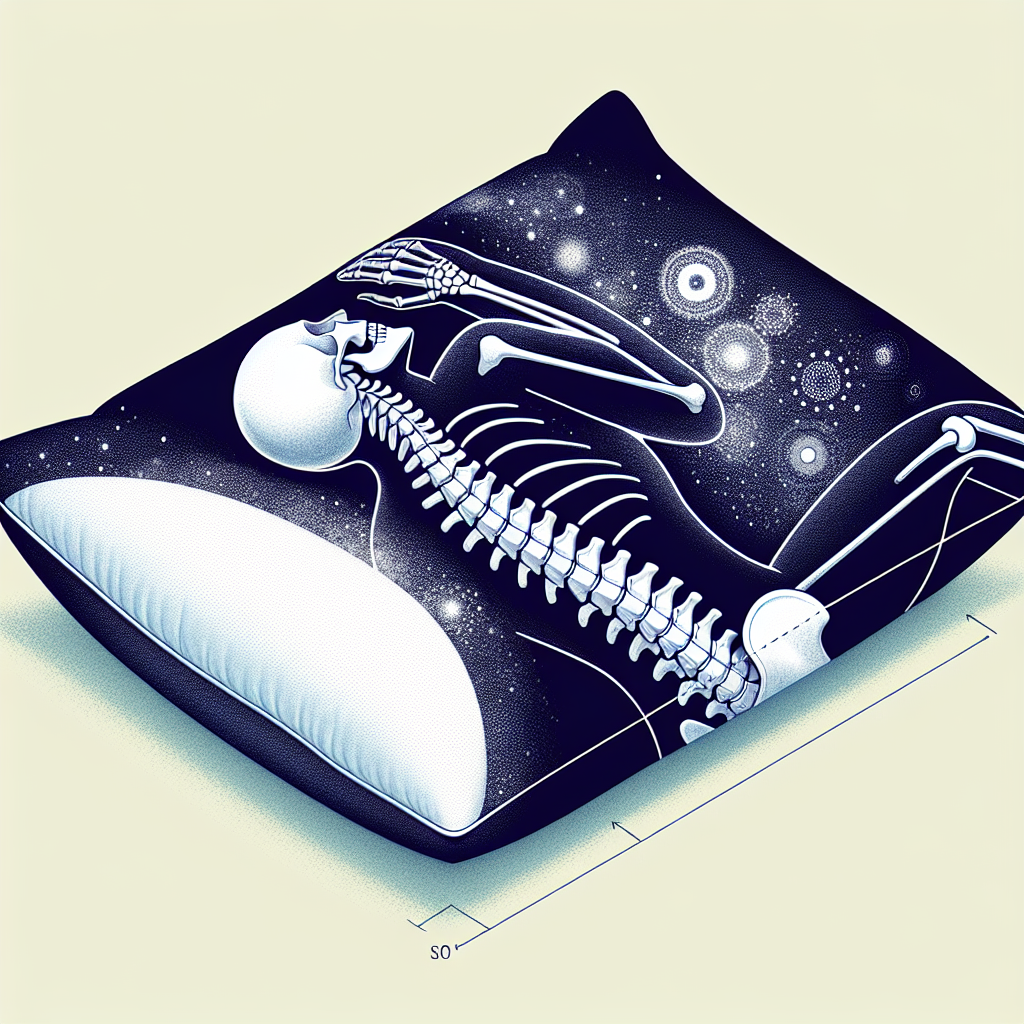
Have you ever wondered if there was a more comfortable way to sleep that could also benefit your spine? Look no further than side sleeping! Many studies have shown the numerous advantages of sleeping on your side, particularly when it comes to spinal alignment. By adopting this sleep position, you can potentially reduce back pain, improve digestion, and promote better breathing. So, if you’re looking for a simple and effective way to enhance your sleep quality while caring for your spine, side sleeping might just be the answer you’ve been searching for.
Benefits of Side Sleeping for Spine Alignment

Introduction
Sleeping is an essential part of our daily routine, and the position we choose to sleep in can have a significant impact on our overall health. While there are several sleep positions to choose from, side sleeping has been found to offer numerous benefits, particularly when it comes to spine alignment. In this article, we will explore the various advantages of side sleeping for spine alignment and how it can improve your overall well-being.
Improved Spinal Alignment
One of the key benefits of side sleeping is the improved alignment of the spine. When you sleep on your side, your spine naturally aligns itself in a more straight and neutral position. This alignment helps to alleviate any strain or tension that may have built up in your spine throughout the day, allowing for proper rest and rejuvenation.

Reduced Risk of Low Back Pain
Low back pain is a common issue that affects many individuals, and your sleep position can play a role in its development. Side sleeping has been found to reduce the risk of low back pain by distributing your body weight evenly along the spine. This even distribution helps to minimize pressure on the lumbar spine, which is often a critical area of concern for individuals experiencing low back pain. By supporting the natural lumbar curve, side sleeping can help alleviate discomfort and promote a healthier back.
Prevention of Neck Pain
In addition to promoting spinal alignment, side sleeping also helps in preventing neck pain. By sleeping on your side, you reduce the strain on your neck that can occur when sleeping on your back or stomach. This reduction in strain allows for proper neck support and alignment of the cervical spine, reducing the chances of waking up with a stiff or sore neck.

Decreased Risk of Sleep Apnea
Sleep apnea is a serious condition characterized by a partial or complete blockage of the upper airway during sleep. Side sleeping has been shown to decrease the risk of sleep apnea by keeping the airway passage open. This position helps to prevent the collapse of the upper airway, allowing for improved breathing and reducing the likelihood of experiencing interruptions in your sleep due to sleep apnea.
Enhanced Digestion
Believe it or not, side sleeping can also have a positive impact on your digestion. When you sleep on your side, it promotes improved gastric emptying, ensuring that food moves through your intestines more efficiently. This enhanced digestion can help reduce issues such as bloating, constipation, and indigestion, allowing for a more comfortable night’s sleep and better overall digestion.
Improved Blood Circulation
Proper blood circulation is vital for overall health and well-being. Side sleeping facilitates unobstructed blood flow throughout the body, ensuring that oxygen and essential nutrients are optimally supplied to your organs and tissues. This improved blood circulation can promote overall healing, aid in cell regeneration, and contribute to a healthier cardiovascular system.
Alleviation of Acid Reflux
Acid reflux is a common condition where stomach acid flows back up into the esophagus, causing discomfort and heartburn. Side sleeping can help alleviate the symptoms of acid reflux by reducing the flow of acid to the esophagus. Additionally, the gravity-assisted drainage of acid in this position minimizes the likelihood of experiencing heartburn or other acid reflux-related issues during the night.
Reduced Risk of Snoring
Snoring can be disruptive to both you and your sleep partner. Side sleeping has been found to reduce the risk of snoring by opening up the airway passage and improving airflow. By keeping the airway clear and reducing soft tissue vibration, side sleeping can help decrease snoring and contribute to a quieter and more restful sleep environment.
Better Brain Health
Adequate sleep is crucial for brain health and cognitive function. Side sleeping can contribute to better brain health by promoting uninterrupted sleep and reducing the likelihood of sleep disruptions. When you sleep on your side, you are less likely to experience interruptions in your breathing or sleep apnea episodes, allowing for deeper and more rejuvenating sleep. This improved sleep quality can lead to better memory, concentration, and overall cognitive function.
Conclusion
Choosing the right sleep position is an important aspect of maintaining good spinal alignment and overall health. Side sleeping offers a multitude of benefits for spine alignment, including improved spinal alignment, reduced risk of low back pain, prevention of neck pain, decreased risk of sleep apnea, enhanced digestion, improved blood circulation, alleviation of acid reflux, reduced risk of snoring, and better brain health. By understanding the advantages of side sleeping and making necessary adjustments to your pillow and mattress, you can optimize your sleep position and enjoy the many health benefits it has to offer. So, why not give side sleeping a try and wake up feeling refreshed and rejuvenated each morning? Sweet dreams!





